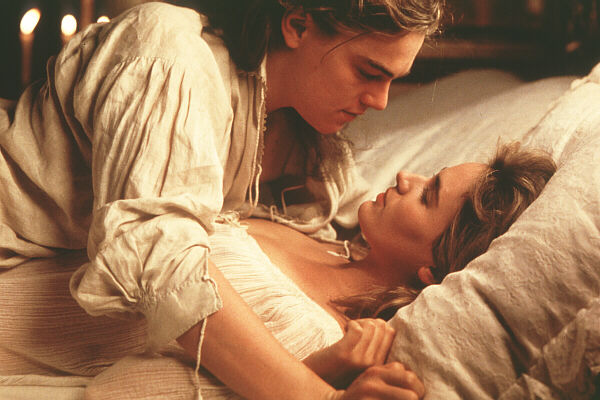
RATING









As befits a movie written and directed by Braveheart scribe Randall Wallace -- a man known far more for his enthusiasm than his subtlety -- the latest adaptation of Alexandre Dumas' classic novel The Man in the Iron Mask is a rollicking, swords 'n' sentiment-packed treat... a rabble-rousing, crowd-pleasing, straight-up swashbuckler that revels whole-heartedly in its own old-fashioned brand of fun.
The movie begins with three of the legendary Musketeers in retirement. Athos (John Malkovich), the fiercest fighter, hopes his only son will also be a Musketeer; Aramis (Jeremy Irons), the cleverest and most morally slippery, has become a priest; and Porthos (Gerard Depardieu), the most physically powerful, is increasingly depressed by the aging process. The only one left on active duty is d'Artagnan (Gabriel Byrne), garrison captain at the court of the young French King Louis XIV (Leonardo DiCaprio).
Though d'Artagnan has tried his best to steer Louis onto the path of compassion and honor, a series of events makes it obvious that the boy is far more interested in being a despotic tyrant who can do whatever he wants -- steal other people's girlfriends, ignore his starving people, get Athos' son killed -- and get away with it because of his position. This revelation soon pits d'Artagnan, who has his own secret reasons for remaining stubbornly loyal to the bad monarch, against the older Musketeers, who plan to replace Louis with a mysterious prisoner known only as (wait for it!) the Man in the Iron Mask.
At its worst, Wallace's directorial debut plays like a Gold Key Comics adaptation brought to life -- an energetic, slightly shallow potboiler with a disproportionately great cast. At its best, how-ever, it packs moments of genuine emotional power which explore the complex relationships between abstract loyalty to one's country and specific loyalty to one's friends, the elusive parallels between real and surrogate fatherhood and the idea that power must be balanced with responsibility.
Plus a lot of wit, wenching and heaving, half-clad bosoms, of course. So it all evens out in the end.